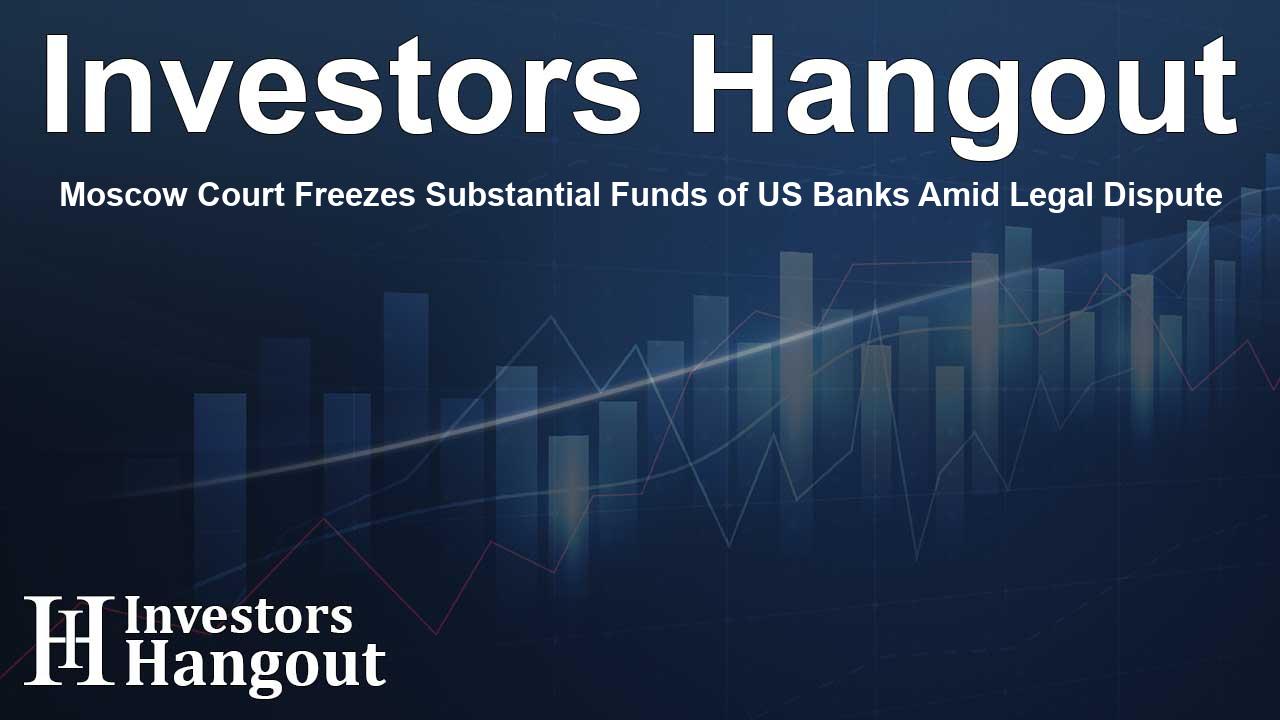Moscow Court Freezes Substantial Funds of US Banks Amid Legal Dispute

Moscow Court Takes Action Against US Banks
In a notable legal development, the Moscow Region Arbitration Court has taken a significant step by freezing funds belonging to two major U.S. banks: the Bank of New York Mellon and JP Morgan Chase. The decision impacts funds totaling approximately $372 million, held by the Russian branch of Citibank and Morgan Chase Bank.
Legal Grounds for the Court's Decision
The court's action was prompted by an initiative from Russia’s deputy prosecutor. The rationale provided for freezing these assets revolves around protecting the interests of the Russian Federation. This decision comes in the wake of the Ukrainian central bank's decision to withdraw the banking license from MR Bank, a Ukrainian subsidiary affiliated with Sberbank, which is the largest bank in Russia.
Details of the Financial Cutoff
As per court documents, the prosecutor’s office has accused the two U.S. banks of engaging in what they term as “expropriation” of MR Bank's assets. The decision alleges that the actions undertaken by Ukrainian regulators infringed upon the lawful interests of the state. Specifically, the prosecutor's office has highlighted the need to recognize $121 million deposited by MR Bank in an account at JP Morgan Chase and an additional $251 million at the Bank of New York Mellon as rightful property of Sberbank.
Implications for Sberbank
This legal battle not only encapsulates the tensions surrounding international banking but has also led to Sberbank being denied judicial control over its Ukrainian subsidiary. Consequently, this situation has obstructed the bank's ability to manage its income from operations abroad, significantly affecting its financial standing.
Reactions from the Banking Sector
In light of these developments, both Sberbank and JP Morgan have chosen to remain silent regarding the recent court actions. The nuanced political and economic implications of such a case could resonate through the global banking community, particularly given the complex interdependencies formed in international finance.
Future Outlook
As the legal proceedings advance, it remains uncertain how this situation will resolve for both the involved banks and the Russian financial system. Observers are keenly watching for further developments that could shape international banking relations, particularly between the U.S. and Russian institutions.
Frequently Asked Questions
What triggered the funds freeze by the Moscow court?
The freeze was initiated by Russia's deputy prosecutor to protect the interests of the Russian Federation amid legal issues involving MR Bank and Ukrainian regulators.
Which U.S. banks are affected by this court ruling?
The affected banks are JP Morgan Chase and the Bank of New York Mellon.
How much money is involved in the funds freeze?
The total amount frozen is approximately $372 million.
What are the implications for Sberbank?
Sberbank has lost judicial control over its subsidiary MR Bank and has been impacted financially by the inability to manage its overseas income.
Are the banks commenting on the court ruling?
Both Sberbank and JP Morgan have declined to provide any comments regarding the situation.
About Investors Hangout
Investors Hangout is a leading online stock forum for financial discussion and learning, offering a wide range of free tools and resources. It draws in traders of all levels, who exchange market knowledge, investigate trading tactics, and keep an eye on industry developments in real time. Featuring financial articles, stock message boards, quotes, charts, company profiles, and live news updates. Through cooperative learning and a wealth of informational resources, it helps users from novices creating their first portfolios to experts honing their techniques. Join Investors Hangout today: https://investorshangout.com/
Disclaimer: The content of this article is solely for general informational purposes only; it does not represent legal, financial, or investment advice. Investors Hangout does not offer financial advice; the author is not a licensed financial advisor. Consult a qualified advisor before making any financial or investment decisions based on this article. The author's interpretation of publicly available data shapes the opinions presented here; as a result, they should not be taken as advice to purchase, sell, or hold any securities mentioned or any other investments. The author does not guarantee the accuracy, completeness, or timeliness of any material, providing it "as is." Information and market conditions may change; past performance is not indicative of future outcomes. If any of the material offered here is inaccurate, please contact us for corrections.